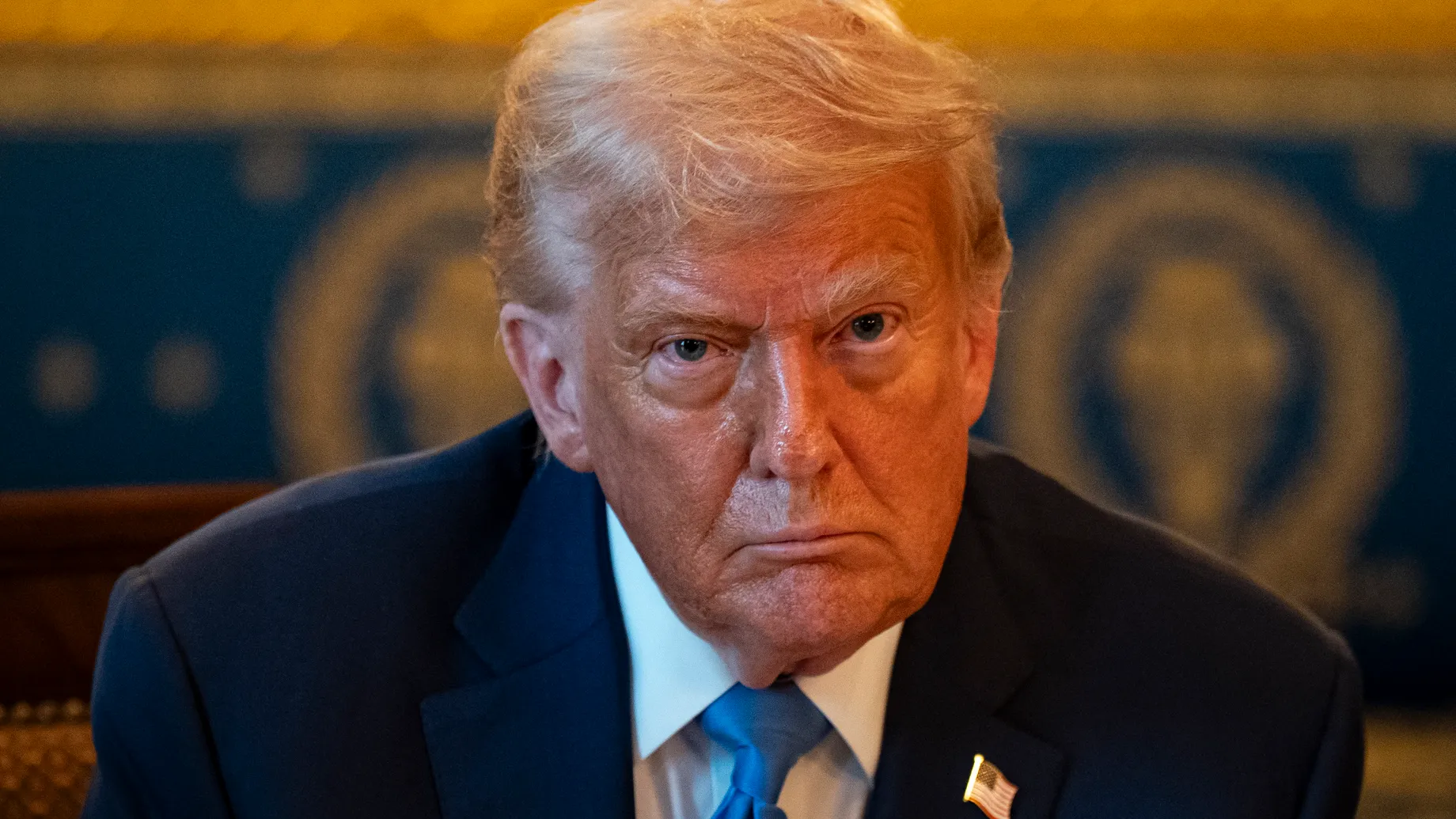Donald Trump’s recent change in tone toward Vladimir Putin has caught many by surprise. After years of admiration and accommodating rhetoric toward the Russian leader, Trump bluntly declared during a recent public cabinet meeting: “I’m not happy with Putin. Putin tells us a lot of bullshit, frankly. He’s always very nice to us, but that turns out to be meaningless.” His use of profanity, though quickly censored by many U.S. media outlets, marked an unprecedented level of criticism directed at the Kremlin from the U.S. president.
According to Der Spiegel, this sudden shift signals a possible recalibration of Trump’s entire approach to Russia. For years, he had spoken about Putin as a potential partner, even saying earlier this year, “I believe he wants peace… I think he’d tell me if he didn’t. I trust him on this.” Now, Trump is voicing disappointment and promising new arms deliveries to Ukraine: “We’re going to send them more weapons. They need to be able to defend themselves.”
U.S. media outlets were quick to react. The Washington Post called it a “sharp about-face.” Newsweek wrote that Trump’s position on Ukraine “is shifting.” The Wall Street Journal went further: “Trump unmasks the Putin charade.”
What’s Behind Trump’s Change of Heart?
Trump’s new rhetoric likely stems from more than just personal frustration. During his campaign, he repeatedly claimed he could end the war in Ukraine within 24 hours through direct negotiations with Putin and Ukrainian President Volodymyr Zelensky. But after three years of Russia’s international isolation, six personal phone calls with Putin, and two rounds of Russian-Ukrainian talks, the conflict has only escalated.
This failure undermines one of Trump’s core campaign messages — his self-styled role as a global peacemaker. Trump is currently touting his supposed successes in Gaza and Iran and has hinted that he should be nominated for the Nobel Peace Prize. Ending the Ukraine war would be a legacy-defining achievement for him. As Der Spiegel suggests, Trump sees Ukraine not as a humanitarian issue, but as a political opportunity.
Another interpretation is that Trump is once again deploying his long-favored “Madman Theory” — a strategy of appearing erratic and unpredictable to keep opponents off balance. This approach, popularized by Richard Nixon, is designed to create uncertainty and leverage in negotiations.
Signals of Military Aid and Sanctions
Equally significant is Trump’s promise of more weapons for Ukraine, which directly contradicts a recent Pentagon decision to halt deliveries of air defense systems and munitions due to dwindling stockpiles. According to Politico, the order originated from Deputy Defense Secretary Elbridge Colby and was approved by Defense Secretary Pete Hegseth without informing the White House or Congress. CNN reported that Hegseth currently lacks a chief of staff and a close advisory team due to recent dismissals and scandals — contributing to confusion in Ukraine policy.
When asked about the halt, Trump, seated beside Hegseth at the cabinet table, said he didn’t know who had made the decision. The next day, however, he added, “If such a decision had been made, I would know about it.” Sources within the administration told reporters that Trump had been “caught off guard,” which helps explain his current effort to reassert control and direction.
According to The Wall Street Journal, Trump is now seriously considering sending a Patriot missile defense system to Ukraine — the first major U.S. weapons package personally authorized by him since taking office.
He has also expressed support for a long-delayed sanctions bill against Russia introduced by Republican Senator Lindsey Graham. The legislation includes not only new sanctions but also tariffs on countries that continue importing Russian oil, gas, or uranium — such as China and India. Graham has said he expects bipartisan support in the Senate to move it forward.
The Kremlin Reacts: Calm or Concern?
Despite Trump’s shift, the Kremlin has responded with apparent calm. Presidential spokesman Dmitry Peskov commented, “We view this quite calmly. President Trump simply has a tough way of expressing himself. We expect to continue our dialogue with Washington.” According to Peskov, Moscow hopes the U.S. will remain committed to bringing the Ukrainian conflict back to the diplomatic table.
However, Russian lawmaker Maria Butina offered a more cynical view: “You can’t draw long-term conclusions from Trump’s words. He changes his mind five times a day.”
Former Kremlin adviser and foreign policy analyst Dmitry Trenin also warned against overinterpreting Trump’s comments. Writing in Kommersant, he stated: “Trump is not the king of America. The so-called Trump revolution we spoke of at the beginning of the year seems to have been replaced by a gradual shift toward alignment with the U.S. establishment.” Still, a tone of disappointment was evident in his analysis.
A Real Shift or Just Noise?
Is Trump genuinely pivoting away from his long-held admiration for Putin, or is this just another calculated move in his unconventional political playbook? As Der Spiegel notes, if the Kremlin believed that Trump would be a like-minded autocrat who would readily sacrifice Ukraine to mend ties with Moscow — they may have miscalculated, at least for now.
This article was prepared based on materials published by Der Spiegel. The author does not claim authorship of the original text but presents their interpretation of the content for informational purposes.
The original article can be found at the following link: Der Spiegel.
All rights to the original text belong to Der Spiegel.


















